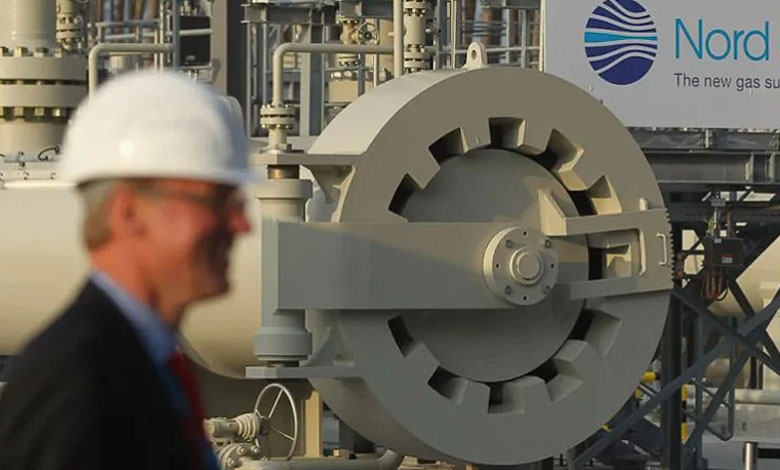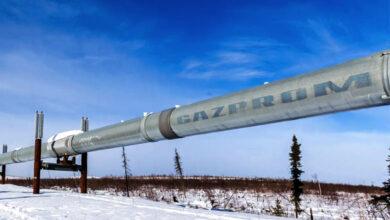Why does American investor Lynch need the bankrupt Nord Stream 2 gas pipeline

Currently, the infamous Russian gas pipeline “Northern Stream-2” is not working. An investigation is ongoing to find out the causes and perpetrators of the incident, as well as to decide what to do with the gas pipeline next.
Meanwhile, in mass media information appeared that American investor Steven Lynch plans to buy Nord Stream-2 if it is put up for sale due to bankruptcy. The Miami-based investor, who has more than 20 years of experience buying troubled assets in Russia and has built a reputation as an expert on Russian economic and political realities, believes it could help the U.S. influence negotiations with Russia and strengthen Europe’s energy security.
On his opinion after the end of the war, Russia and European states will want to resume operation of the gas pipeline, regardless of its owner.
What happened to “Nord Streams”
It is known that in September 2022, explosions occurred on the Nord Stream-1 and Nord Stream-2 gas pipelines in the Baltic Sea. For the investigation, there are obvious signs of purposeful subversive actions, although the specific culprits have not been officially identified. Some countries hint at the geopolitical interest of the aggressor country, while others assume the involvement of outside actors who sought to destabilize the situation on the energy market.
The damage made the pipelines unusable for transporting gas. Recovery requires significant efforts and financial resources. This accident deprived Europe of an important route for the supply of “blue fuel” and additionally exacerbated problems with energy resources, especially in the winter of 2022-2023.
After the accident, the EU made efforts to reduce dependence on Russian gas, in particular through diversification of supply sources. Europe has increased imports of liquefied natural gas from the USA, Qatar and other countries, actively developing the infrastructure of LNG terminals in Germany, Poland, and the Netherlands. In the wake of these transformations of the energy market, Norway became a key supplier of gas, and Algeria also intensified supplies of energy carriers.
In parallel, eurozone countries have invested in green energy, including wind and solar power plants, and developed green hydrogen technologies as an alternative to fossil fuels. Energy saving programs aimed at the modernization of residential and industrial facilities were implemented.
Explosions on gas pipelines strengthened the positions of the countries that are antagonistic to the project. Poland has long considered Nord Stream 2 a threat to Europe’s energy security and strengthened its position thanks to the launch of the Baltic Pipe gas pipeline and the expansion of the LNG terminal in Świnoujście. The Baltic countries confirmed their reservations about Russia’s unreliability as a supplier by developing unified energy networks with Western Europe.
The damage to the Nord Stream became a symbol of the collapse of Russia’s strategy to use energy resources as a lever of influence. The EU received a signal for unity, reduced dependence on one supplier, strengthened energy security and strengthened the position of countries that support anti-Russian sanctions. This case became a lesson for the region, highlighting the importance of diversification, innovation and collective security.
The accident at the strategic gas pipelines reminded Europe of the vulnerability of its critical infrastructure. This led to increased protection of energy facilities, including marine pipelines. On the one hand, this disaster negatively affected the European economy due to the increase in energy prices, but at the same time it stimulated the development of alternative energy sources and infrastructure for LNG. In a certain sense, this accident became a symbol of the energy war between Russia and the West.
The reaction of the media and experts regarding the intention of the American to purchase the Kremlin gas pipeline
Some analysts are positive, I thinkor that the acquisition of the gas pipeline by an American investor can provide the US with additional leverage in future negotiations with Russia and contribute to the energy security of the Eurozone.
Other experts point out, that the resumption of Nord Stream-2 under the control of Western investors can ensure the stability of gas supplies to Europe after the end of the conflict.
Some of the reviewers skeptical, expressing doubts about the realism of this project due to the legal and political ambiguity of property rights to Nord Stream-2, as well as possible sanctions and restrictions.
Critics also draw attention to moral aspects of the agreement, taking into account the current situation in Ukraine and Russia’s role in the conflict.
In general, Lynch’s initiative became the subject of active discussions, emphasizing the complexity and multifaceted nature of the issue of ownership and management of strategic energy facilities in the modern world.
Possible geopolitical consequences of the acquisition of Nord Stream-2
The acquisition of the Nord Stream 2 gas pipeline can change the balance of power in the European energy sector. If the United States gains control of the pipeline, it is likely to weaken Russia’s position in the European energy market. After the end of the war, the Eurozone will be able to diversify its energy sources and ensure a more stable supply of gas. But opinions in the world are divided: some see this as a strategic advantage, others raise questions about the ethics of using the Russian infrastructure project in wartime conditions.
As for the positives for the American economy, the acquisition of such an asset can help the United States strengthen its position in the global energy market and improve economic ties with Europe. At the same time, it can cause additional costs: from legal disputes due to sanctions to the need for investments in the modernization of the gas pipeline.
The purchase of a gas pipeline by an American investor can have significant political and economic consequences. This move opens up prospects for the US to use this asset as an important tool of global influence. Control over this strategic object can give the United States additional leverage in relations with Russia and strengthen the American position on sanctions, energy policy or geopolitical conflicts.
American control over the gas pipeline can guarantee the Old World energy stability by preventing the use of the gas pipeline for political pressure on EU countries, expanding the supply of liquefied natural gas from the US, which will reduce Europe’s dependence on Russian energy resources, transparent and stable operation of the gas pipeline under the control of a neutral party.
In the long term, control over “PP-2” can become profitable for American investors, provided a political situation is created in which the gas pipeline can function again, and new energy routes and policies are formed in Europe.
Prospective investors hope that their purchase of the pipeline will be seen by Europe as a strengthening of the transatlantic energy partnership. This will contribute to strengthening the positions of EU countries that seek to avoid dependence on Russian gas, and deepen cooperation with the US in the field of energy security.
However, the implementation of such a scenario is accompanied by certain risks. After all, the Kremlin may consider the acquisition as a provocation, and this will complicate diplomatic relations. Currently, it is not known whether the gas pipeline is able to work after the damage and whether it will be profitable in the new conditions. Some EU members may be wary of increasing US influence on European energy.
This acquisition is consistent with the desire of the American political elite to reduce Europe’s dependence on Russian energy carriers, which will give the recognized “world policeman” more leverage in international negotiations. However, domestically, this may cause controversy. Some would argue that the private sector should not be involved in such sensitive matters, especially when it comes to infrastructure that has previously served as a tool of Russian influence.
So, Lynch’s idea to purchase the Russian gas pipeline “PP-2” is both a great chance and an extraordinary responsibility. For the world, it can become a tool to resist Russian pressure, for the US economy – an opportunity to strengthen its position in energy, and for the American government – another lever of influence. But the implementation of this plan requires a careful approach due to numerous risks and challenges.
Tetyana Viktorova





